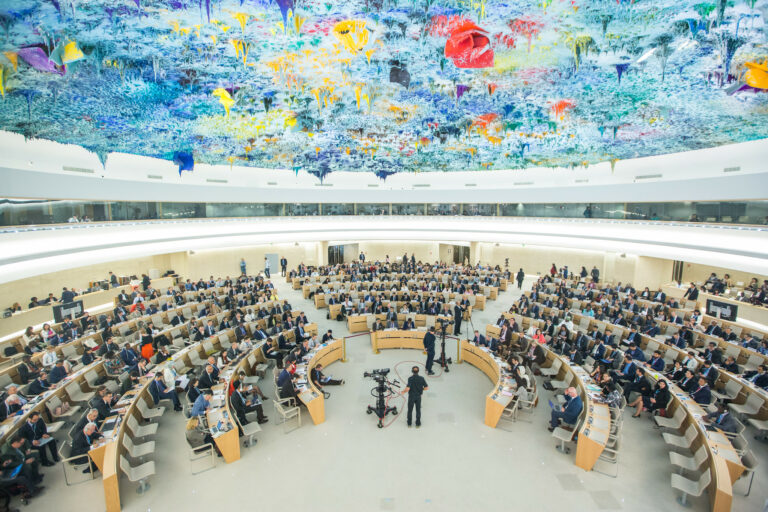Submission to the UN consultation on corporate accountability in the context of human rights and climate change

Download
This report consists of a submission by the Grantham Research Institute on Climate Change and the Environment to a call for inputs on corporate accountability in the context of human rights and climate change. It was issued by the UN Special Rapporteur on climate change to inform a report that will be presented to the 56th Session of the Human Rights Council in 2024.
The submission includes responses to questions on topics including: corporate disclosure mechanisms; climate change risks and corporate accountability; net zero accountability and greenwashing; the UN Guiding Principles on Business and Human Rights in relation to climate change; and the role of the finance and banking sector.
Key messages
- Reporting under environmental, social and governance (ESG) measures remains necessary for assessing whether companies are complying with their obligations. However, reporting standards vary widely, affecting the conclusions that can be drawn from company disclosures and how they can be used. To be more effective, reporting requirements should be backed by engagement, legislation and enforcement.
- Mandatory reporting regimes are becoming increasingly ambitious. For example, the European Union’s Corporate Sustainability Reporting Directive, which member states must incorporate into national law by July 2024, will require companies to adopt a ‘double materiality’ approach in reporting on sustainability risks.
- Corporate disclosure systems are increasingly focusing on target setting and strategy for Scope 3 emissions. These are not usually framed in human rights terms, but they may help mitigate human rights concerns by promoting emissions reductions throughout the value chain.
- The Grantham Research Institute’s Global Trends in Climate Change Litigation 2023 report highlights the increasing number of climate litigation cases targeting companies. There is some evidence that such litigation has indirect effects on corporate entities’ risk management systems by amplifying other forms of climate risk.
- Legislation with criteria for substantiating net zero claims is critical to ensuring that companies maintain high-integrity net zero commitments, something that anti-greenwashing legislation may potentially discourage in the absence of clear requirements.
- Carbon credits purchased through voluntary carbon markets can contribute to greenwashing at the point of credit issuance and when advertising a company, product or service. Courts are increasingly asked to grapple with these challenges.
- The application of the UN Guiding Principles on Business and Human Rights (UNGPs) to climate change remains largely conceptual and academic, although they have been successfully invoked in civil litigation to hold corporations accountable for their contributions to climate change – most notably in Milieudefensie et al. v. Royal Dutch Shell plc.
- The TPI Centre’s assessment of banks shows ongoing financing of fossil fuel activities that are misaligned with aims to limit global temperature rise to 1.5 degrees. The current level of fossil fuel expansion would result in the carbon budget for this scenario being exceeded, with widespread negative impacts on human rights.
- Green bonds can help companies and governments deliver ambitious climate mitigation targets, provided they fulfil available certification criteria. However, green loans are generally opaque. While certification schemes may help ensure that projects financed by green bonds are aligned with climate targets, they do not necessarily guarantee that human rights obligations are met.

